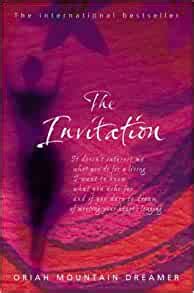A Quote by Albert Camus
But - I cannot make a choice. I have my own sorrow, but I suffer with him, too; I share his pain. I understand all - that is my trouble.
Related Quotes
Before every session, I take a moment to remember my humanity. There is no experience that this man has that I cannot share with him, no fear that I cannot understand, no suffering that I cannot care about, because I too am human. No matter how deep his wound, he does not need to be ashamed in front of me. I too am vulnerable. And because of this, I am enough. Whatever his story, he no longer needs to be alone with it. This is what will allow his healing to begin. (Carl Rogers)
It is hard to be with another's pain if we cannot be with our own. Since I was a child I have always felt a deep sense of responsibility to ease others' pain. But I have discovered that often, beneath this genuine and admirable desire, lies an inability to be with my own sorrow. Several years ago, watching a close friend suffer when a brain aneurysm took away her life as she knew it, I wrote in my journal, "I won't ask much. But if you would just let me save your life, perhaps it will not hurt so much to know I cannot save my own.
I didn't know what to do. How do you tell an eight-year-old boy his mother's going to die? I tried. In my own stumbling way I tried to prepare Jim for it. Nowadays, he lives in a world we don't understand too well, the actor's world. We don't see too much of him. But he's a good boy, my Jim. A good boy, and I'm very proud of him. Not easy to understand, no sir. He's not easy to understand. But he's all man, and he'll make his mark. Mind you, my boy will make his mark.
And what shall he suffer who slays him who of all men, as they say, is his own best friend? I mean the suicide, who deprives himself by violence of his appointed share of life. Not because the law of the state requires him. Nor yet under the compulsion of some painful and inevitable misfortune which has come upon him. Nor because he has had to suffer from irremediable and intolerable shame, but who from sloth or want of manliness imposes upon himself an unjust penalty.
On the ground of our own goodness we cannot expect to have our prayers answered. But Jesus is worthy, and for His sake we may have our prayers answered. There is nothing too choice, too costly, or too great for God to give Him. He is worthy. He is the spotless, holy Child, who under all circumstances acted according to the mind of God. And if we trust in Him, if we hide in Him, if we put Him forward and ourselves in the background, depend on Him and plead His name, we may expect to have our prayers answered.
George Jones and I happen to share the same birthday. The first and only time I met him (which I believe was at the Opry if my memory serves me), I told him that. His response, 'You must be trouble.' Takes one to know one, I am so proud to say. George, his music and his mischievous trouble, will all be missed. He is a country legend.
To each his suff'rings; all are men, Condemn'd alike to groan,- The tender for another's pain, Th' unfeeling for his own. Yet ah! why should they know their fate, Since sorrow never comes too late, And happiness too swiftly flies? Thought would destroy their paradise. No more; where ignorance is bliss, 'T is folly to be wise.
The agony of martyrdom is almost too much to bear. In the early hours, when the loss is fresh, there is no comfort in knowing Glory will live on. We speak of the martyrs in History but we cannot know the actual pain they suffered in their final living hours. They enter the realm of the mythic, but we must never forget these were men like ourselves. When their flesh is torn, they cry out. They suffer as you or I would suffer, although more bravely. Remember Christ. Although I am now an enemy to Joseph's legacy, I shudder when recalling his pain.









































